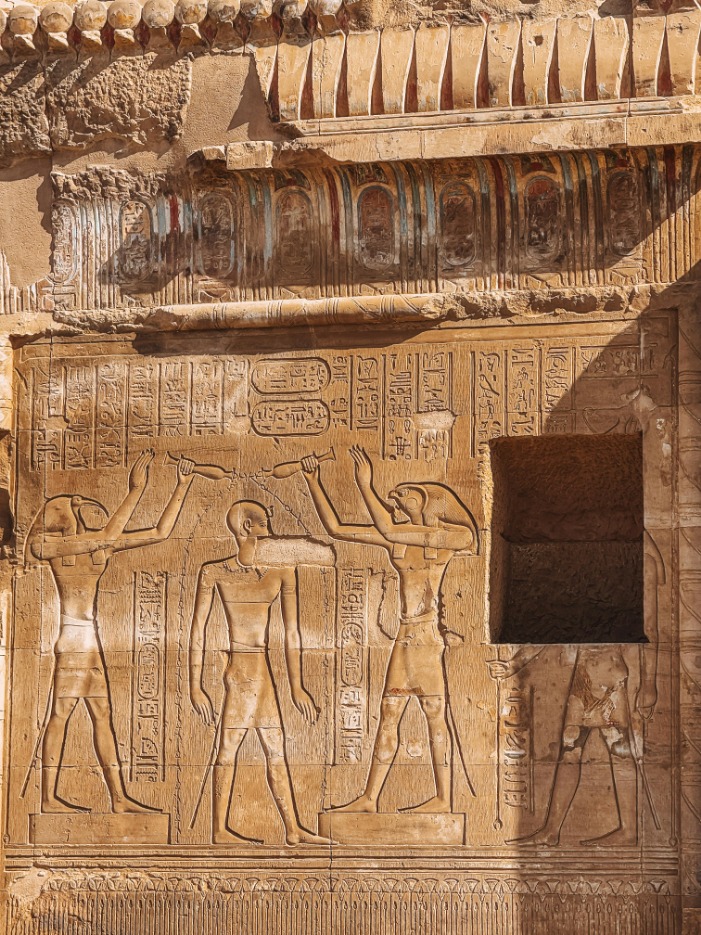Geographical Location and Climate
Aswan, a city located in the southern part of Egypt along the banks of the Nile River, is known for its strategic geographical setting and unique climate. Situated near the borders of Sudan, Aswan features a landscape characterized by rocky deserts and lush riverbanks, offering a striking contrast. Its climate is predominantly hot and dry, with scorching summers and mild winters, making it a distinctive region with a warm and sunny environment year-round. This combination of location and climate greatly influences the lifestyle and cultural heritage of Aswan’s inhabitants.
Location of Aswan in Egypt
Aswan is a city located in the southern part of Egypt, situated along the eastern bank of the Nile River. It is approximately 900 kilometers south of Cairo, making it a key gateway to the Nubian region and neighboring countries such as Sudan. The city is renowned for its strategic position at the First Cataract of the Nile, providing it with a unique geographical significance.
Aswan’s climate is classified as desert, characterized by hot, dry summers and mild, cool winters. During the summer months, temperatures can rise above 40°C (104°F), often accompanied by minimal rainfall. Winters are relatively mild, with daytime temperatures averaging around 20-25°C (68-77°F). The low annual rainfall and the abundant sunshine make Aswan a desirable location for tourism and agriculture, especially with the Nile’s vital water source supporting local life and development.
Climate Characteristics and Seasons
Aswan is a city located in the southern part of Egypt, situated on the eastern bank of the Nile River. Its geographical position near the border with Sudan gives it a unique landscape characterized by a combination of desert plains and fertile river valleys. The city is known for its picturesque scenery, including the Nile River, the nearby Nubian villages, and the vast, arid desert surrounding it.
The climate in Aswan is classified as a hot desert climate, with extremely high temperatures during the summer months and mild, pleasant winters. The region experiences very little rainfall throughout the year, making it one of the driest places in Egypt. The intensity of the sunshine and the high temperatures contribute to the harsh, arid environment.
The temperature in summer often exceeds 40°C (104°F), while winter temperatures are much milder, averaging around 10-20°C (50-68°F). Summers are characterized by intense heat and clear skies, while winters tend to be warm during the day and cooler at night. The climate’s distinct dry season and mild winter season make Aswan an ideal destination for those seeking warm weather and sunshine almost year-round.
Historical Significance
Aswan, a city steeped in rich history and cultural heritage, holds a significant place in Egypt’s ancient and modern narratives. Situated along the Nile River, it has been a vital hub for trade, commerce, and spirituality for thousands of years. The city’s historical significance is reflected in its remarkable monuments, including the iconic Abu Simbel temples and the Aswan High Dam, which symbolize Egypt’s engineering feats and resilience. Exploring Aswan offers a glimpse into Egypt’s diverse past and its enduring influence on regional history.
Ancient Egyptian Role and Historical Sites
Aswan city in Egypt holds significant historical importance due to its strategic location along the Nile River and its role in ancient Egyptian civilization. Historically, Aswan was a vital hub for trade, transportation, and cultural exchange, serving as the gateway to the southern regions of Egypt and the lands beyond. The city is renowned for its contribution to the development of ancient Nubian culture and its proximity to monumental sites that showcase Egypt’s rich history.
The ancient Egyptian role in Aswan is deeply intertwined with its strategic and religious significance. The area was home to several important temples and monuments, including the impressive temples dedicated to gods such as Kom Ombo and Philae. Aswan also played a key role in limiting foreign invasions, thanks to its natural defenses provided by the Nile cataracts. The city’s position enabled it to serve as a crucial military and trade outpost during different periods of ancient Egypt.
Today, Aswan is famous for its remarkable archaeological and historical sites. Among these are the Aswan High Dam, which symbolizes modern engineering ingenuity, and the Philae Temple complex, dedicated to the goddess Isis, which is a testament to ancient religious practices. The Nubian Museum showcases the rich cultural heritage of the Nubian people, while the Unfinished Obelisk provides insight into ancient obelisk-carving techniques. These sites attract visitors from around the world, highlighting Aswan’s enduring legacy as a land of historical and cultural significance.
Philae Temple and Other Archaeological Landmarks
Aswan city in Egypt is renowned for its rich history and archaeological significance, offering a unique glimpse into ancient Egyptian civilization. The city serves as a bridge between Egypt’s ancient past and its modern development, drawing visitors from around the world to explore its remarkable landmarks.
The Philae Temple is one of Aswan’s most iconic archaeological sites. Originally constructed during the 4th century BCE, it was dedicated to the goddess Isis and played a vital role in the religious life of ancient Egypt. The temple complex was relocated to its current island location following the construction of the Aswan High Dam, ensuring its preservation amidst rising waters. Its well-preserved hieroglyphs and intricate carvings provide valuable insights into Egyptian mythology and religious practices.
Aside from Philae, Aswan boasts several other important archaeological landmarks, including:
- Aswan High Dam: An engineering marvel of the 20th century, it significantly altered the Nile River’s flow and provided essential flood control, irrigation, and hydroelectric power.
- Unfinished Obelisk: A massive granite obelisk that demonstrates the advanced engineering skills of the ancient Egyptians; its incomplete state offers insights into ancient quarrying techniques.
- Abu Simbel Temples: Located nearby, these monumental temples carved into sandstone cliffs were built by Pharaoh Ramses II and are renowned for their colossal statues and artistic grandeur.
- Nubian Village: A vibrant community showcasing the Nubian culture and history, with distinctive architecture and colorful homes that reflect the region’s heritage.
These sites collectively highlight Aswan’s historical significance as a hub of religious, engineering, and cultural achievement, making it a must-visit destination for those interested in Egypt’s ancient and contemporary history.
Aswan Dam and its Historical Impact
The Aswan Dam holds a prominent place in the history of Egypt, particularly impacting the city of Aswan and the surrounding region. It symbolizes Egypt’s efforts toward modern development and economic self-sufficiency, transforming the Nile River’s role in the nation’s progress. Constructed in the 1960s with the help of international assistance, primarily from the Soviet Union, the dam was a monumental engineering achievement that provided vital hydroelectric power and agricultural irrigation to a growing population.
The historical significance of the Aswan Dam extends beyond its technical achievements. It marked a shift in Egypt’s national identity, demonstrating the country’s ability to undertake large-scale infrastructural projects independently. The dam also played a crucial role in controlling the Nile’s unpredictable flooding, which historically caused widespread damage and suffering. Moreover, the creation of Lake Nasser, one of the largest reservoirs in the world, led to major social and environmental changes, including the displacement of local communities and the preservation of water resources for future generations.
Overall, the Aswan Dam is a symbol of Egyptian resilience and ambition, reflecting a pivotal moment in the country’s modern history. Its construction and operation have shaped Aswan’s development, contributing to its prominence as a key hub for energy and tourism, and leaving a lasting legacy on Egypt’s economic and industrial landscape.
Cultural Heritage and Traditions
Aswan, a city rich in history and natural beauty, is a vibrant hub of cultural heritage and traditions in Egypt. Its unique blend of ancient monuments, colorful festivals, and local customs reflects the deep-rooted history and diverse influences that have shaped the city over centuries. Exploring Aswan’s cultural heritage offers a glimpse into the traditions that continue to thrive amidst its stunning landscapes and ancient sites.
Local Festivals and Celebrations
Aswan, Egypt, is a city rich in cultural heritage and vibrant traditions that reflect its long history and diverse influences. The city is renowned for its ancient Nubian culture, which is showcased through traditional music, dance, and craftwork that have been passed down through generations. Local festivals and celebrations play a vital role in preserving these customs, offering a glimpse into the spiritual and communal life of the people. One of the most notable events is the Abu Simbel Festival, celebrating the grand temples and the Nubian identity with colorful processions, music, and dance. Additionally, Aswan’s Pharaonic monuments, such as the Aswan High Dam and the temples of Philae, serve as cultural symbols that connect the present to Egypt’s illustrious past. The city’s festivals often feature traditional food, storytelling, and ceremonies rooted in ancient rituals, creating a lively atmosphere that highlights Aswan’s unique cultural richness and the pride its residents take in their heritage.
Traditional Crafts and Artisanship
Aswan, a city rich in cultural heritage and tradition, stands as a proud guardian of Egypt’s historical and artisanal legacy. Its vibrant markets, ancient sites, and local crafts reflect the deep-rooted customs passed down through generations.
The city is renowned for its traditional crafts, including intricate Nubian jewelry, colorful textiles, and handcrafted pottery. Local artisans employ age-old techniques, preserving the skills that define Aswan’s unique artistic identity and contribute to the local economy.
Artisans in Aswan also specialize in weaving traditional garments and creating elaborate carvings that honor the region’s history and sacred sites. These crafts not only serve as tangible links to the past but also continue to thrive as vital cultural expressions, showcasing the creativity and resilience of the community.
Religious and Cultural Influences
Aswan City in Egypt is a vibrant center of cultural heritage and traditions that reflect its rich history and diverse influences. The city’s history is intertwined with ancient Egyptian civilization, evident in its archaeological sites and monuments such as the Philae Temple and the Aswan High Dam. Local traditions are deeply rooted in the customs of the Nubian people, whose unique language, music, dance, and crafts contribute to the city’s cultural fabric. Religious influences are prominent, with Islam and Christianity playing significant roles in daily life, as seen in the many mosques and churches that coexist harmoniously. These religious practices influence festivals, rituals, and community gatherings, fostering a sense of identity and continuity. Additionally, Aswan’s cultural expressions are shaped by its geographical location along the Nile River, which has historically served as a conduit for cultural exchange and trade. Overall, Aswan’s cultural heritage and traditions exemplify a rich tapestry of ancient and contemporary influences that continue to define its unique character today.
Natural Attractions
Aswan city in Egypt is renowned for its breathtaking natural attractions that showcase the beauty of the Nile River and the surrounding landscape. Surrounded by lush greenery and scenic vistas, Aswan offers visitors a unique opportunity to experience the tranquility and splendor of nature. From majestic river views to stunning islands, the city is a perfect destination for nature lovers seeking serenity and adventure alike.
Nile River and Its Importance
Aswan, a city in southern Egypt, is renowned for its stunning natural attractions, particularly the Nile River. The Nile is the lifeblood of the region, shaping the landscape and providing vital resources to local communities. Its serene waters and lush banks attract numerous visitors and locals alike, making Aswan a unique destination that blends natural beauty with cultural history.
- The Nile River in Aswan flows through picturesque scenery, offering opportunities for boat cruises and fishing. Its gentle currents support diverse aquatic life, enriching the local ecosystem.
- The river’s importance extends beyond beauty; it is crucial for agriculture, providing water for crops and sustaining the local economy.
- Key attractions along the Nile in Aswan include the Aswan High Dam, which highlights modern engineering and plays a vital role in flood control and hydroelectric power generation.
- Natural attractions like the Botanical Garden on Kitchener’s Island showcase vibrant flora, while nearby islands and riverbanks offer peaceful retreats amid nature.
- The Nile also holds historical significance, as it was a cradle of ancient Egyptian civilization, with many archaeological sites and temples found along its banks.
Aswan Botanical Garden
Aswan, a picturesque city in southern Egypt, is renowned for its stunning natural attractions, including the Aswan Botanical Garden. Located on Kitchener’s Island, this lush garden offers visitors a peaceful retreat amidst a diverse collection of plants from around the world. Surrounded by the Nile River, the garden provides breathtaking views and a tranquil atmosphere perfect for relaxation and exploration.
The Aswan Botanical Garden is a haven for nature lovers and botany enthusiasts. It features an extensive variety of tropical and subtropical plants, including rare and endangered species. Visitors can stroll through the scenic paths, enjoy the vibrant flora, and learn about different plant species from informative displays. The garden also plays an important role in conservation and scientific research, contributing to the preservation of plant diversity.
Beyond its botanical significance, the garden offers a unique perspective of Aswan’s natural beauty. Its strategic location on the island provides panoramic views of the Nile River, the historic Unfinished Obelisk, and the surrounding landscapes. At sunset, the garden becomes an enchanting place to witness the stunning colors reflected on the river, making it a must-visit destination for tourists seeking to experience the natural charm of Aswan.
Elephantine Island
Elephantine Island is a prominent natural attraction located in the city of Aswan, Egypt. This lush island offers visitors a unique blend of natural beauty and historical significance, making it a must-visit destination for travelers exploring the region. Surrounded by the majestic Nile River, Elephantine Island features scenic landscapes, abundant greenery, and serene waterways that provide a peaceful retreat from the bustling city.
One of the key natural attractions on Elephantine Island is its diverse flora and fauna, which thrive in the island’s fertile environment. Visitors can enjoy walking along its nature trails, exploring ancient ruins, and experiencing the tranquil atmosphere that envelops the island. It serves as an ideal spot for outdoor activities such as picnicking, bird watching, and photography.
Highlights of Elephantine Island include archaeological sites like the Nubian Museum and Temples, as well as traditional Nubian villages where visitors can witness authentic local culture and interact with friendly residents. The island’s natural landscape offers spectacular views of the Nile and the surrounding desert, making it a favorite for nature lovers and history enthusiasts alike.
- Scenic Nile River views
- Abundant greenery and natural landscapes
- Ancient Nubian temples and archaeological sites
- Traditional Nubian villages with vibrant culture
- Opportunities for outdoor recreation and photography
Economy and Development
Aswan city in Egypt is a region rich in history and culture, playing a vital role in the country’s economy and development. Located along the Nile River, Aswan has traditionally been a center for agriculture, trade, and tourism. In recent years, efforts to harness its natural resources and strategic location have spurred economic growth and infrastructural development. Understanding Aswan’s economic landscape offers insight into Egypt’s broader development goals and the region’s contribution to the nation’s prosperity.
Tourism Industry and Attractions
Aswan, a vibrant city in southern Egypt, plays a significant role in the country’s economy and development. Known for its strategic location along the Nile River, Aswan benefits from agriculture, mining, and tourism industries that contribute substantially to local prosperity. The city’s economy is supported by the cultivation of crops such as sugarcane, cotton, and various fruits, alongside the exploitation of mineral resources like granite and other stones. Over recent years, there has been a focus on infrastructure development and boosting tourism to foster sustainable growth.
The tourism industry in Aswan is a vital sector, attracting visitors from around the world who seek to experience its rich history and natural beauty. The city is home to several iconic attractions, including the majestic Aswan High Dam, which symbolizes modern Egyptian engineering. Visitors also explore the ancient temples of Philae and Abu Simbel, as well as enjoy boat trips on the Nile with views of traditional feluccas. The nearby Nubian villages offer cultural experiences that showcase the unique heritage of the region.
Aswan continues to develop as a major tourist hub, with efforts to improve hospitality services, promote eco-tourism, and preserve its archaeological sites. These initiatives aim to enhance the city’s reputation as a destination for cultural tourism, facilitating economic growth and attracting investment. The combination of its natural splendors and historical landmarks makes Aswan a key player in Egypt’s broader tourism industry and economic development initiatives.

Agriculture and Local Produce
Aswan city in Egypt stands as a vital hub for the nation’s economy and development, leveraging its unique geographical location along the Nile River. The region’s economy benefits significantly from agriculture, which remains a cornerstone of local livelihood and prosperity. The fertile Nile valley allows for the cultivation of diverse crops, including sugarcane, cotton, and various fruits and vegetables, supporting both local markets and export activities.
In recent years, there has been a focus on promoting sustainable agricultural practices and increasing productivity through modern technology and irrigation systems. Additionally, Aswan’s emphasis on developing local produce contributes to economic growth by reducing reliance on imports and fostering self-sufficiency. Local farmers participate actively in markets and cooperatives, ensuring that fresh, high-quality produce reaches consumers efficiently.
Tourism, driven by Aswan’s rich history and scenic landscapes, also plays a role in supporting the economy. This interplay between agriculture and tourism helps diversify the local economy while preserving the cultural and natural heritage of Aswan. Overall, the city demonstrates a dynamic balance between traditional agricultural practices and modern development initiatives, paving the way for sustainable economic growth.
Trade and Commerce in Aswan
Aswan, a city located in southern Egypt, plays a significant role in the country’s economy and development, particularly through its contributions to trade and commerce. Its strategic position along the Nile River facilitates transportation, commerce, and tourism, making it an important hub for economic activities in the region.
The city benefits from various sectors that drive its economic growth. Agriculture thrives due to the fertile Nile delta, supporting local markets and export activities. Additionally, Aswan is renowned for its mineral resources, including granite, which is widely used in construction and sculpture. The development of the Aswan High Dam has not only provided hydroelectric power but also improved irrigation, enabling increased agricultural productivity and supporting local livelihoods.
Trade and commerce in Aswan are bolstered by its status as a gateway for cross-border trade with Sudan and other neighboring countries. The Souk area in Aswan is a vibrant marketplace where local artisans and traders sell traditional crafts, textiles, and goods, attracting tourists and boosting small businesses. The city also benefits from tourism centered around historic sites such as the Aswan Obelisk, Philae Temple, and the Nubian Museum, generating revenue and employment opportunities.
- Trade agreements and regional cooperation enhance the flow of goods and services between Egypt and neighboring nations.
- Growth in the tourism sector contributes significantly to the local economy, supporting hotels, restaurants, and transportation services.
- Investment in infrastructure, including ports and transportation networks, facilitates better commercial exchanges and connectivity.
Overall, Aswan continues to develop as an important center for trade, tourism, and economic growth within Egypt, leveraging its geographical advantages and rich cultural heritage for sustainable development.
Transportation and Infrastructure
Aswan City in Egypt is a vital hub for transportation and infrastructure, serving as a key gateway connecting northern and southern parts of the country. The city boasts a well-developed network of roads, bridges, and waterways that facilitate the movement of people and goods. Its strategic location along the Nile River has historically made it an important center for trade and communication, supporting both local communities and tourism. Continued investment in Aswan’s infrastructure enhances its role as a vital regional connector and promotes sustainable growth in the area.
Connectivity via Road and Rail
Aswan city in Egypt is a vital hub for transportation and infrastructure, serving as a key point for connectivity through both road and rail networks. Its strategic location along the Nile River has historically contributed to its importance as a transportation center, facilitating movement of people and goods within Egypt and beyond.
- Road Infrastructure: Aswan is connected to major Egyptian cities such as Cairo and Luxor via well-maintained highways, enabling efficient road travel. The city features a network of local roads that facilitate access to residential areas, industrial zones, and tourist sites such as the Aswan Dam and Philae Temple.
- Rail Connectivity: The railway system in Aswan links it to the wider Egyptian rail network, providing reliable train services to Cairo, Luxor, and other parts of the country. This rail connection is crucial for transporting agricultural products, minerals, and tourists, enhancing economic development.
- Port Facilities: Aswan also has port facilities along the Nile, supporting river transport and enabling the movement of bulk commodities and passenger vessels, which complement road and rail networks.
- Future Developments: Plans for expanding and modernizing transportation infrastructure aim to improve connectivity further, boost tourism, and support regional development.
Boat and Ferry Services on the Nile
Aswan city in Egypt is a vital hub for transportation and infrastructure along the Nile River, with boat and ferry services playing a crucial role in connecting various parts of the region. These water transport services facilitate the movement of both locals and tourists, providing an efficient and scenic way to travel across the river. The boat and ferry networks are well-developed, offering routes to key destinations such as Elephantine Island, Philae Temple, and other historic sites along the Nile. These services not only support daily commuting but also boost tourism by allowing visitors to experience the natural beauty and cultural landmarks of Aswan from the water. Overall, boat and ferry services are an integral part of Aswan’s transportation infrastructure, contributing to the city’s economic and cultural vitality.
Urban Development and City Infrastructure
Aswan city in Egypt is a vital hub for transportation and urban development, combining historical significance with modern infrastructure. Its strategic location along the Nile River makes it a key center for both local and regional movement of people and goods. The city’s infrastructure has been evolving to accommodate growing populations and enhance connectivity within Egypt and beyond.
- Transportation in Aswan includes a network of roads, bridges, and railways that connect the city to other major Egyptian cities like Cairo and Luxor. The Aswan High Dam also plays a role in transport logistics by regulating water flow and providing hydroelectric power.
- The Aswan Railway Station is a crucial transportation link, facilitating passenger and freight movement along the Nile Valley. Additionally, the city is served by Nile ferry services that enhance river-based connectivity.
- Urban development projects in Aswan focus on modernizing the city infrastructure, including new residential areas, commercial zones, and public amenities. Efforts are underway to improve sewage, water supply, and electrical networks to meet the needs of residents and visitors.
- City infrastructure enhancements also include expanding roads and creating pedestrian-friendly spaces to support tourism, which is a significant economic sector for Aswan. Maintaining the balance between preserving its historical sites and developing modern facilities is a key challenge.
Modern Aswan
Modern Aswan, a vibrant city in southern Egypt, combines rich history with contemporary charm. Known for its stunning Nile River views and proximity to ancient monuments, Aswan has evolved into a bustling hub of culture and tourism. With its welcoming atmosphere and scenic landscapes, the city offers a unique blend of tradition and modernity, making it a captivating destination for travelers and residents alike.
Urban Growth and City Planning
Modern Aswan has experienced significant urban growth and development over recent decades, transforming from a relatively small city into a vital hub in Egypt. The city’s expansion has been driven by strategic developments aimed at enhancing infrastructure, tourism, and economic activity, while balancing the preservation of its cultural heritage and natural environment.
City planning in Aswan has focused on sustainable development, integrating modern urban design with traditional elements. The city layout includes well-planned residential neighborhoods, commercial zones, and transportation networks that connect key areas efficiently. Efforts have also been made to improve public spaces and promote environmental conservation, especially considering Aswan’s proximity to the Nile River and the Nubian Desert.
- Implementation of new residential and commercial districts to accommodate the growing population.
- Development of transportation infrastructure, including roads, bridges, and improved rail links.
- Enhancement of tourism facilities, such as hotels, museums, and access points to historical sites like the Aswan High Dam and Philae Temple.
- Launch of sustainability initiatives focused on water management and green spaces to ensure ecological balance.
- Integration of smart city concepts to improve urban services and resident quality of life.
Educational and Research Institutions
Modern Aswan, a vibrant city in southern Egypt, is not only known for its rich history and stunning Nile River vistas but also for its advancing educational and research institutions that contribute significantly to regional development. The city hosts several prominent universities and research centers dedicated to various fields including engineering, agriculture, and environmental sciences. These institutions attract students and scholars from across Egypt and beyond, fostering innovation and knowledge exchange.
Aswan University stands out as a key educational establishment, offering diverse undergraduate and postgraduate programs aimed at addressing local and national challenges. Additionally, research centers focusing on Nile River management, renewable energy, and archaeological studies play a vital role in promoting sustainable development and cultural preservation. Modern infrastructure and investment in higher education have transformed Aswan into an important hub for academic and scientific pursuits in Egypt.
Environmental Conservation Efforts
Modern Aswan is a vibrant city in Egypt renowned for its rich cultural heritage and stunning natural landscapes. In recent years, there has been a significant focus on environmental conservation efforts to preserve the city’s unique environment and natural resources. Initiatives include the establishment of protected areas around the Nile River to safeguard its biodiversity and water quality. Local authorities and environmental organizations have promoted sustainable tourism practices to minimize ecological impact. Additionally, efforts to reduce pollution through waste management programs and the promotion of renewable energy sources, such as solar power, have gained momentum. These initiatives aim to ensure that Aswan remains a beautiful and healthy environment for future generations while supporting its economic development through tourism and agriculture.





0 Comments